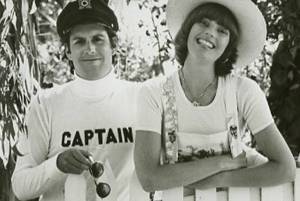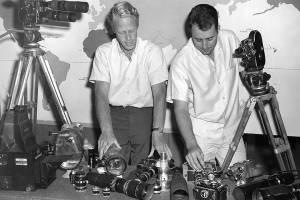By KATHLEEN MULROY
Earth Day celebrates a big birthday in 2020: It’s 50 years old.
The beginnings of the first Earth Day actually date back to 1962, with the publication of Rachel Carson’s landmark non-fiction work, Silent Spring. The book quickly became a bestseller, selling over a half-million copies in 24 countries. It helped raise widespread public awareness of and concern for living creatures, the environment, and the undeniable links between pollution and public health.
Spurred by Silent Spring, and having been horrified by the destructive 1969 oil spill in Santa Barbara, California, U.S. Senator Gaylord Nelson (D-Wisconsin) decided to push for a national day that would focus on the environment. He hoped such a day would put environmental protection onto the national political agenda.
Senator Nelson announced a plan to hold a national “teach-in” day on the environment—an “Earth Day.” He asked Representative Pete McCloskey (R-CA) to serve as his co-chair and recruited a 25-year-old named Denis Hayes as the day’s national coordinator.
Hayes subsequently built a national staff of 85 to promote environmentally themed events across the United States.
April 22, which fell between most academic spring breaks and final exams, was selected as the first official Earth Day. On that day in 1970, around 20 million Americans took to the streets, demonstrating for a healthy, sustainable environment.
Thousands of colleges and universities organized protests against environmental destruction, and some held “whole Earth” festivals, which celebrated nature.
By the end of 1970, Earth Day had helped lead to the creation of the U.S. Environmental Protection Agency and the passage of the Clean Water and Endangered Species Acts.
Two decades later, a group of environmental leaders approached Denis Hayes to organize another major—now global—campaign.
Earth Day 1990 mobilized around 200 million people in 141 countries, to demonstrate for the environment. These demonstrations paved the way for the 1992 United Nations Earth Summit in Rio de Janeiro.
On the 25th anniversary of Earth Day, in 1995, President Bill Clinton awarded Senator Gaylord Nelson the Presidential Medal of Freedom in recognition of Nelson’s important work for the environment and for being the founder of what had become a global movement.
For Earth Day 2000, Denis Hayes agreed to spearhead another worldwide campaign. It focused on global warming/climate change and on the need for clean energy.
In the years following that Earth Day observance, the non-profit organization Earth Day Network initiated a global tree-planting initiative, which has since grown into The Canopy Project. EDN also launched A Billion Acts of Green®, a campaign that, they say, “inspires and rewards individual acts and larger organizational initiatives that help reduce carbon emissions and support sustainability.”
Today, Earth Day is one of the largest secular observances in the world, honored and celebrated by more than a billion people every year as a day of action on behalf of the environment. MSN










